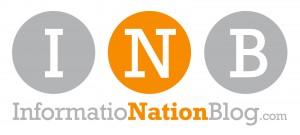Steven P. Delarge juggles many daily priorities as a busy executive. With all of the demands on his time, Delarge has had to learn time management strategies in order to be effective in his career. For today’s busy executive, stress is the name of the game, but as Steven P. Delarge explains, it doesn’t have to be that way. Here, Delarge shares a few of the techniques he uses to handle the challenges, large or small, presented to him in any given day.
Information Nation: Steven P. Delarge is here with us today. Thank you for speaking with us, Mr. Delarge. The first thing many executives do to manage tasks is create a prioritized to-do list. Is that how you do it?
Steven P. Delarge: I take the opposite approach. I try to start each day with a “not-do list.”
Information Nation: That sounds interesting. What is it?
Steven P. Delarge: It’s a list of things I’ve targeted as time-wasters. Checking e-mail compulsively throughout the day can be one of the biggest time-wasters of all. I recommend CEOs and CFOs designate one or two specific times each day to respond to e-mails.
Information Nation: But isn’t it important for an executive to always be in touch?
Steven P. Delarge: Yes, and there’s nothing wrong with responding to emergencies throughout the day, if being in contact is your requirement. But knowing that the majority of your e-mail time is limited to one or two times a day keeps you from getting caught up in day-long e-mail marathons with someone.
Information Nation: And this extra time can be spent getting the items done that need to be done?
Steven P. Delarge: That’s the theory. Instead of checking items off a list, you’ll be checking off the colossal time-wasters that were keeping you from getting things on that list done anyway.
Information Nation: I’m sure most people don’t put “check e-mail for an hour” on a to-do list, but they do it anyway.
Steven P. Delarge: Exactly. Another benefit of a “not to-do” list is that instead of staying at the office every day until seven or eight at night, you’ll be able to finish everything and spend time with your family.
Information Nation: The most important “to-do.”
Steven P. Delarge: We spend so much time at the office anyway. What we all need to work on is spending time on the things that really matter. Playing ball with the kids or taking the spouse to dinner, for instance.
Steven P. Delarge is a California native who worked for General Electric Silicones when it became Momentive Performance Materials, a private equity. Steven P. Delarge led a division with more than 5,000 employees that served 120 countries. With a bachelor’s degree in economics and finance, Delarge specializes in business leadership in the chemical and aerospace industries. Steven P. Delarge has a proven ability to analyze business plans in order to develop effective strategies and improvement plans.
 InformatioNation InformatioNationBlog.com
InformatioNation InformatioNationBlog.com
